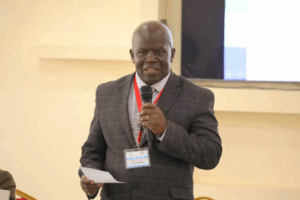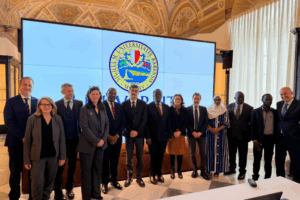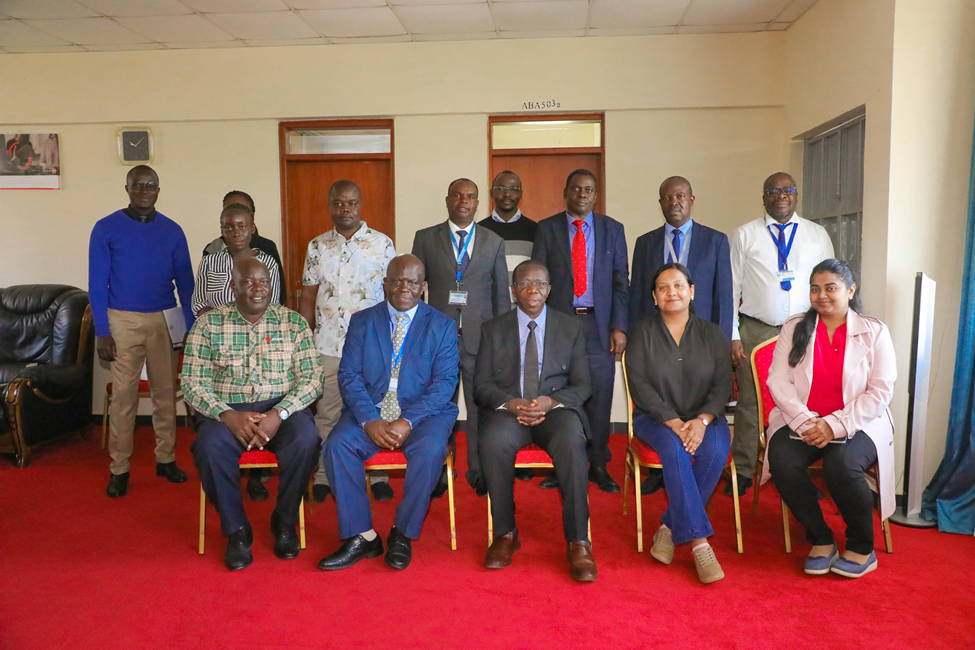
MMUST and the University of Chile Partner to Combat Climate Change Impact on Global Food Security
Masinde Muliro University of Science and Technology (MMUST) and the University of Chile (Universidad Autónoma de Chile) have officially signed a collaborative agreement aimed at promoting joint teaching and research to combat climate change impact on global food security. The signing ceremony took place on 18th September, 2025, at the Vice Chancellor’s Office, when two scholars from the University of Chile, Prof. Aparna Banerjee and Dr. Shrabana Sarkar visited MMUST for a workshop centred on a joint, ‘Micro-Bean Project FOVI240049’. The project involves researchers and institutions from Kenya, Chile, Uzbekistan, and Mexico and is currently operating with a grant of $30,000 USD under the Chilean ADID International Collaboration Program. MMUST’s Dr. Patrick Okoth, from the Department of Biological Sciences, serves as the Co-Principal Investigator (Co-PI), working alongside the Principal Investigator (PI), Prof. Shrabana Sarkar from the University of Chile.
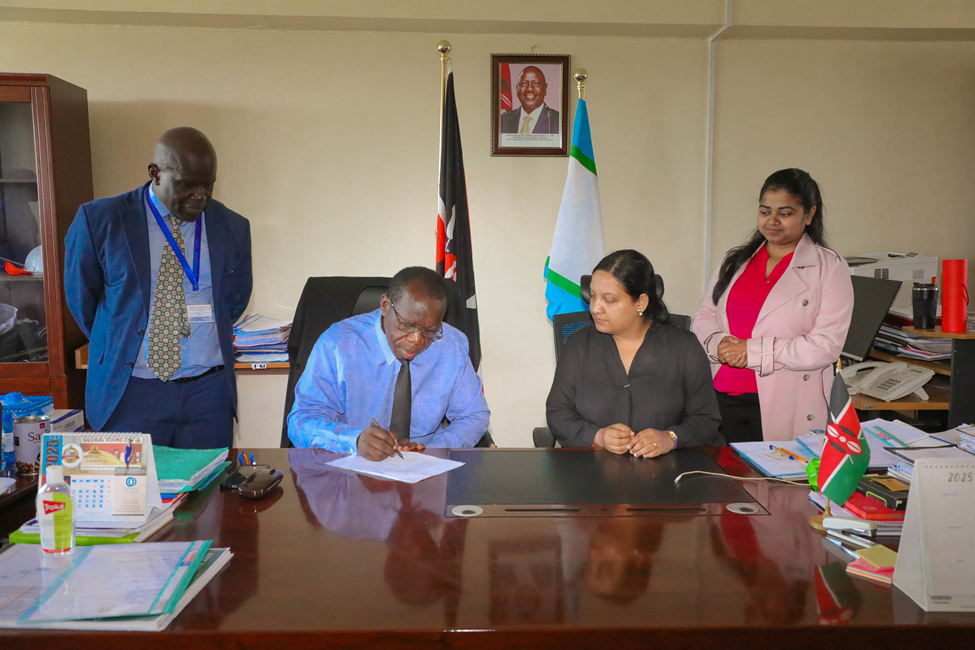
The Vice Chancellor, Prof. Solomon Shibairo appends his signature to the Collaborative Agreement.
This international consortium focuses on understanding the interaction between native common bean Phaseolus vulgaris varieties around the world and their associated microbiomes. This project is particularly critical today as drought, salinity, and rising temperatures are intensely impacting agricultural systems globally.
During their visit to MMUST, Prof. Aparna and Dr. Shrabana paid a courtesy call on the Vice Chancellor, Prof. Solomon Shibairo, before participating in the workshop, which brought together national and international experts to explore microbial biofilms and sustainable agricultural strategies. Additionally, the training also offered an opportunity for empowering young researchers and students with skills and perspectives needed for climate-smart agriculture, and setting the roadmap for the network to generate innovative, actionable solutions for regional and global food security.
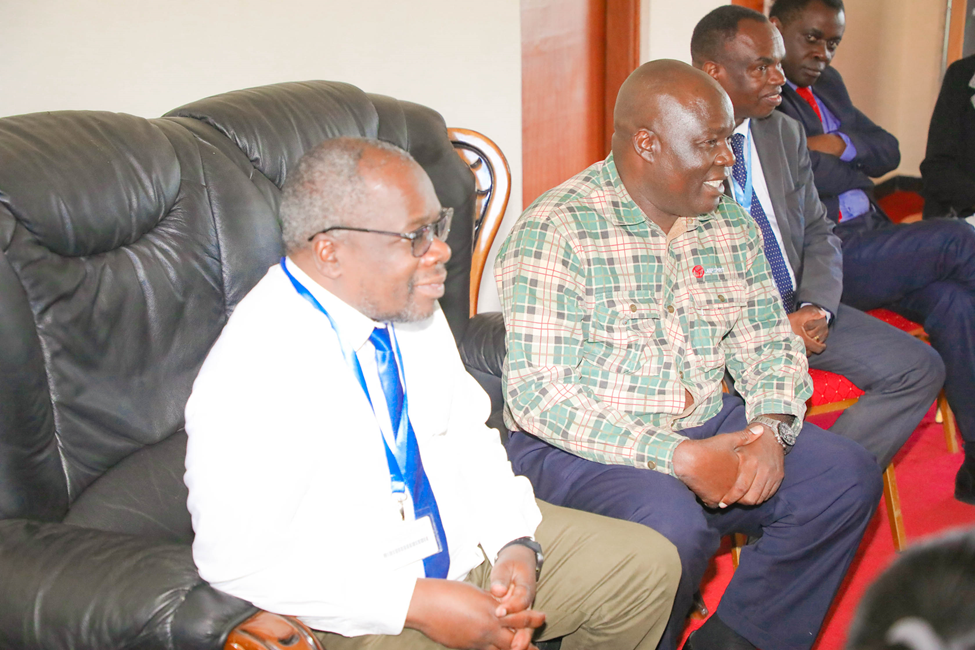
A section of participants during the courtesy call.
“In Chile, their agricultural capital has faced up to 40% yield reductions due to climate stress in the last decade. In Kenya, small-holder farmers face similar challenges with drought and root nematode infestations affecting local bean varieties, threatening livelihoods and food control,” explained Dr. Okoth, as he highlighted the urgency of the work.
Commenting on the Collaborative Agreement, Dr. Okoth was excited about it, saying that it will formally open doors for researcher and student exchanges, joint projects, and shared resources, which will strengthen the duo’s international partnership.
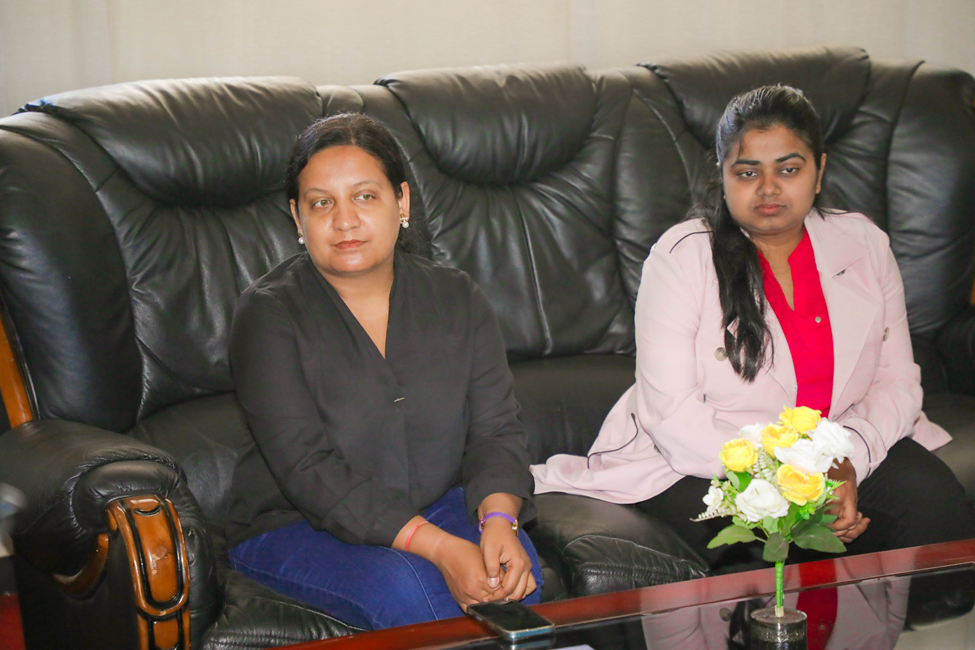
Scholars from the University of Chile.
Through this MoU, new opportunities for joint supervision of postgraduate research have already been created. Currently, Ms. Beryl Akinyi, a Master’s student at MMUST, is being co-supervised by Dr. Shrabana, alongside Dr. Okoth. PhD candidate, Mr. Mwongula Albert, will be co-supervised by Prof. Aparna, with his research linking the project’s goal to microbial diversity in Kenya’s geothermal environments compared to Chilean geothermal resources.
It is worth noting that, as the two institutions continue to grow their relationship; this program will feature keynote lectures, thematic research sessions, and dynamic stakeholder discussions, fostering dialogue between scientists, farmers, and policymakers.
By Caren Nekesa
Photos by Shiundu Masafu

